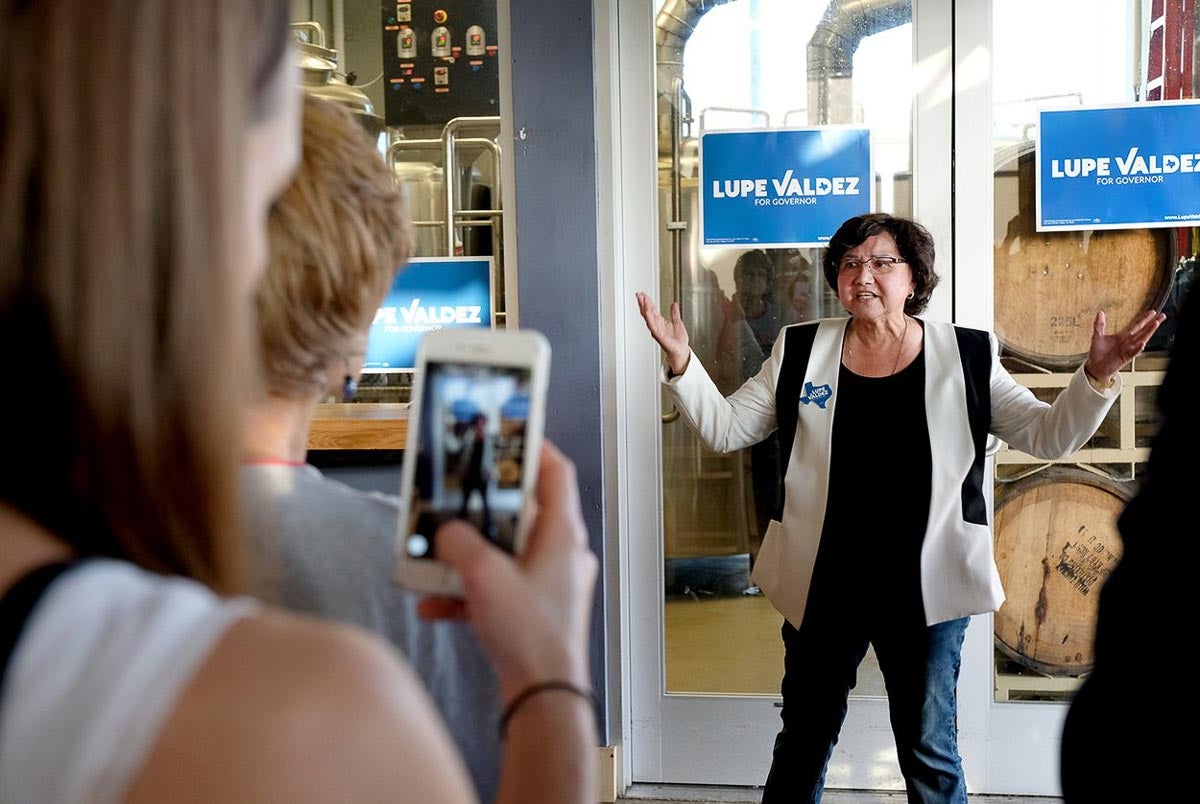Much has been made of the wave of women candidates across the country, including in Texas, looking to not just disrupt politics but in many cases to make history. In Texas, for example, in May, Lupe Valdez became the first Latina to win a major-party spot on the ticket for governor. That runoff election was also notable for its near-record setting low turnout. As of 11 p.m. on election night, "just 415,000 Democrats had cast ballots in the gubernatorial runoff. For reference, that's a decline of almost 60 percent from the 1 million Texans who cast ballots in the March Democratic primary," according to the Texas Tribune. "That's the largest primary-to-runoff decline — and the smallest number of ballots cast — in the 14 Democratic gubernatorial primary runoffs held since 1920."
Still, women are hoping voters will turn out in November to change the math in the statehouse and beyond.
"In Texas, gender disparities are as endemic to politics as outdoor barbecues and invocations of the Alamo," reports David Yaffe-Bellany for the Texas Tribune. "Only three of the 38 members of the state’s congressional delegation are female. And women hold just 37 of the 181 seats in the Texas House and Senate."
The imbalance is not just at the state-level. A Kinder Institute analysis of Houston and Harris County elections found that, "despite being one of the most diverse places in the United States, relatively few local offices are won by Hispanics or by women." That study from the Center for Local Elections and Politics looked at "turnout, contestation, the incumbency advantage and the presence and election of women and Hispanic candidates to local office in Harris County and Houston" between 2004 and 2016.
The very presence of so many women running for office may be a sign things are changing. The report notes:
While running for office is not an easy task to undertake for anyone, women tend to face more challenges than men when it comes to entering the candidate pool. Women are considerably less likely than men to receive external encouragement to run for office, and are more likely to be decruited; that is, encouraged to drop out of a race they have already entered. External encouragement to run for office may be particularly important for women, since they are substantially less likely than men to believe that they can actually win elective office. This is based on a perception of the electorate as sexist and unwilling to elect a woman. Female candidates certainly have to endure gendered stereotypes and outright misogyny while campaigning, but studies have shown that female candidates tend to do just as well as male candidates, both in terms of vote share and fundraising. The main hindrance to women winning elective office, then, is at the candidate entry stage.
In Houston, despite the fact that from "2005 to 2015 there was always a woman on the mayoral ballot, and Annise Parker served three terms as mayor," the report notes, "the picture is different for city council elections. Only half of all elections for district-based city council feature a female candidate, and just over a third of all district-based elections were actually won by women."
Even if many of the women fail to win their races, their experience and example may help pave the way for future runs. “If you lose, people will come asking you for advice and probably ask you to run again,” Kim Olson, the Democratic candidate for commissioner of agriculture, said at the Texas Women Win conference over the weekend. “This is a long game, ladies.”

